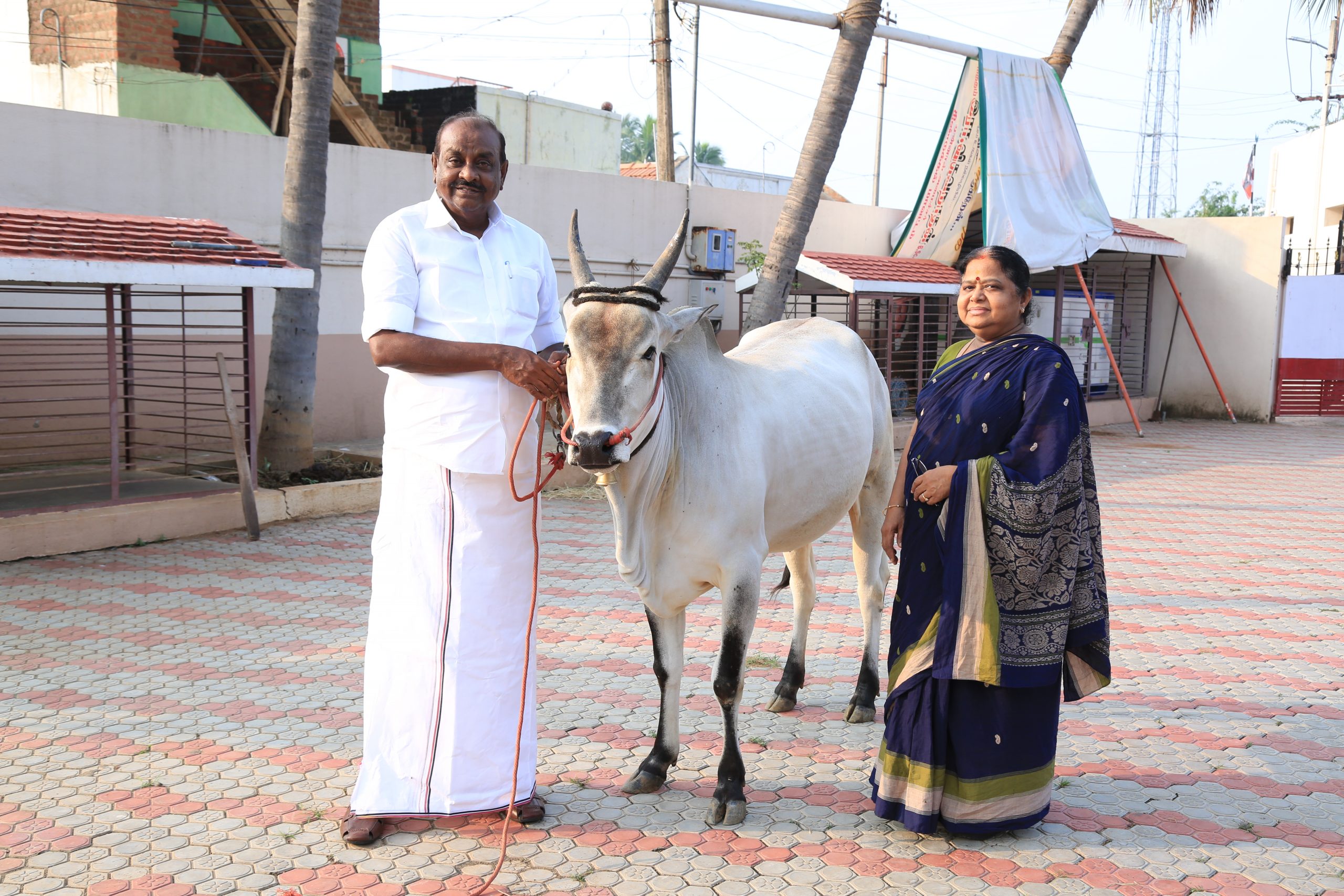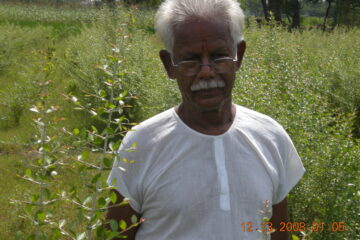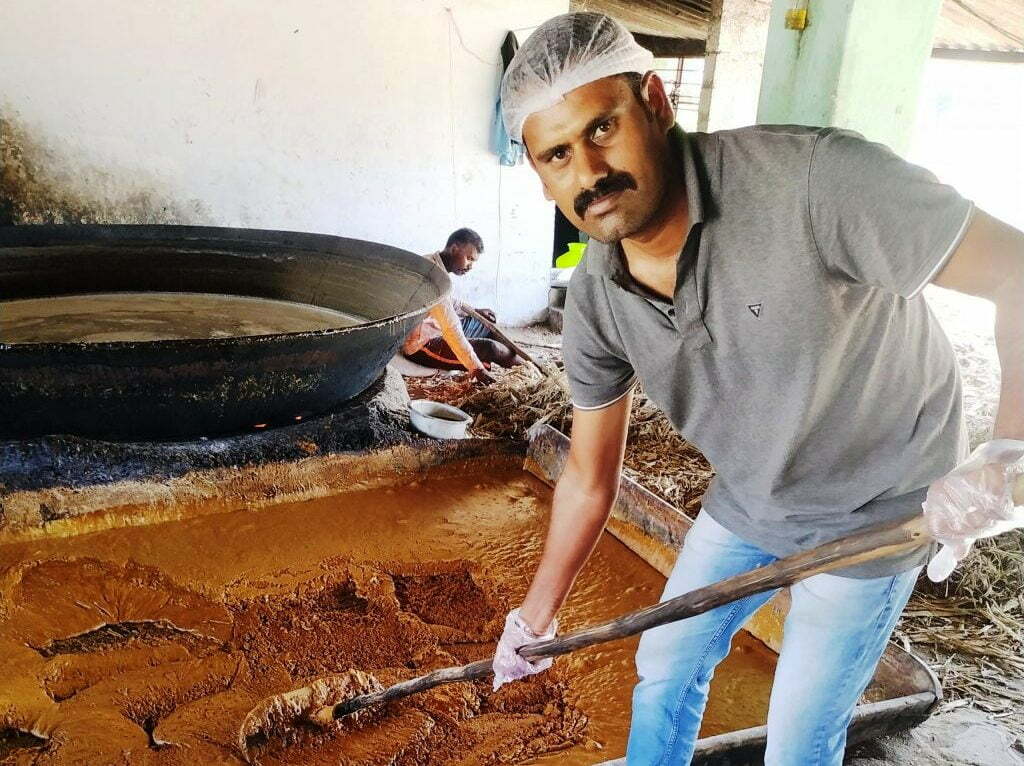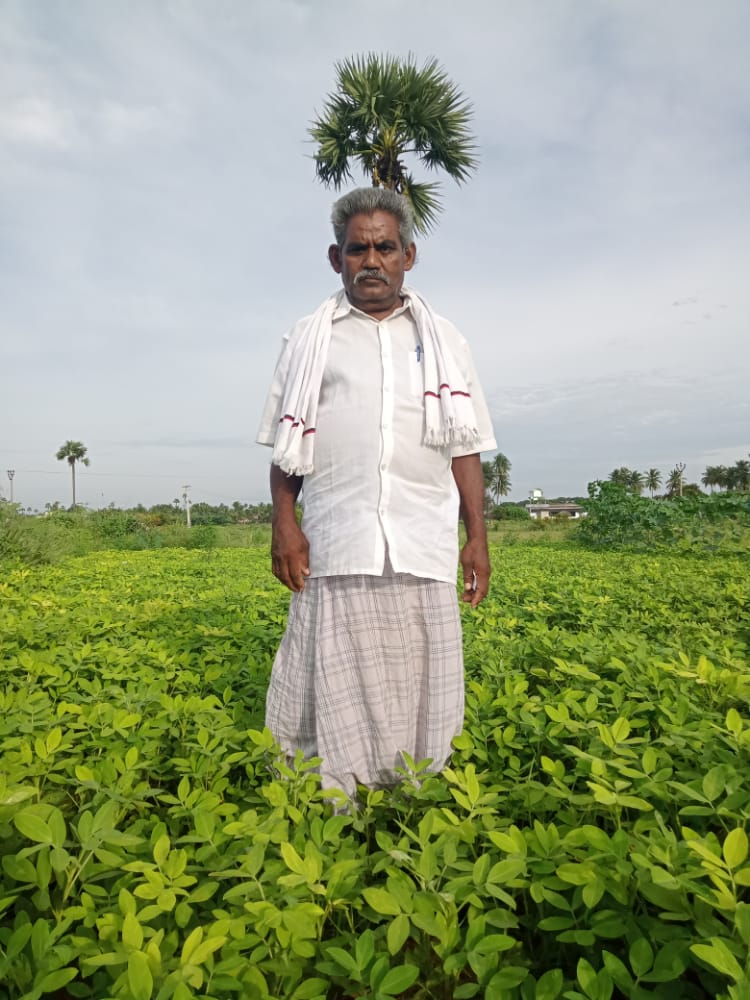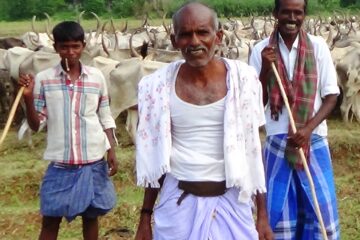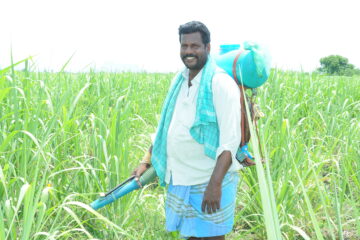Published in: March 2018
Ku.Pa.Krishnan, a former minister of Tamil Nadu and a key figure in establishing the National Banana Research Centre in Trichy, is a man proud to call himself a farmer. Known for speaking his mind with integrity, he welcomed Green Earth magazine to his farm for an interview.
Krishnan’s farm is located about 40 kilometers from Trichy, near Viralimalai on the national highway to Madurai. Upon arrival, he greeted us warmly and took us on a tour, introducing us to his cows—kangayam, sindhu, and jallikattu breeds—before showing his tomato, chili, coriander, and coconut crops.
While nearby fields lay barren due to drought, Krishnan’s farm was a lush, green oasis. Utilizing bore wells and drip irrigation, he had transformed the land. As we walked, he shared his family’s deep farming roots, noting his dedication to growing both local and non-native crops. He even managed to cultivate ginger in a controlled greenhouse environment, with impressive results.
When asked if farming is unprofitable, he countered, “I don’t agree. For example, cultivating rice on an acre costs around 25,000 rupees, yielding about 30 sacks over three months. At 1,000 rupees per sack, plus 6,000 rupees for straw, that’s 36,000 rupees total. After expenses, I make an 11,000 rupee profit in three months. No bank gives that return.”
We then viewed his experimental tomato greenhouse, where he grows tall, healthy plants supported on trellises to prevent rotting from ground contact. “This setup increases yield, and based on these results, I plan to expand it.”
Seeing that the tomatoes needed water, Krishnan immediately ordered diesel for the generator when told the electricity was down. “To protect my crops, I’ll spend whatever it takes,” he explained. “Farming and these plants bring me peace and happiness,” he added, quoting a line from the Tamil poet Vallalar: “Whenever I see plants wither, I wither with them.”
Discussing government support, he remarked, “In Telangana, farmers receive free 24-hour power. Here, we get three to four hours. The government should ensure uninterrupted power for farmers. Abroad, farming is valued just as much as any other profession, yet here, we aren’t treated the same. Our leaders invite businesses to invest, but they do nothing to truly support farming. They offer subsidies, but what farmers need is a fair price for our produce.”
Reflecting on an international delegation he hosted during his term as minister, Krishnan shared, “The visitors said, ‘You’re excellent farmers, but poor marketers.’ They were right—American apples are found everywhere, but our bananas and sapotas aren’t. The government must promote our produce.”
He also noted that large-scale farming is possible overseas due to land consolidation and advanced technology, something that is restricted by land ownership laws here. “During my tenure, I faced many challenges to bring the National Banana Research Centre to Trichy. Despite the struggles, we, farmers, persist in the face of adversity, knowing that no technology or machine can replace what we grow.”
The conversation then turned to water issues, specifically the ongoing Cauvery water dispute. When asked about the Supreme Court’s ruling that mandated the formation of a Cauvery Management Board, Krishnan expressed hope but emphasized that political parties in Karnataka and Kerala exploit the issue for power. “If the central government truly believes in ‘One India,’ it should implement the Supreme Court’s directive and resolve the Cauvery dispute.”
Krishnan went on to criticize the management of groundwater resources, pointing to the sand mining that has depleted groundwater levels. “It’s clear that this is a major ecological disaster, regardless of which government allowed it.”
The discussion also touched on young professionals in tech who seek farming for peace of mind. Krishnan noted, “They turn to farming for a sense of purpose. Only agriculture offers this grounding peace. Technology can’t replace the nourishment provided by agriculture.”
In closing, Krishnan recounted a story from a German tourist who visited India. “In his book, the traveler wrote that he wasn’t captivated by the mountains or rivers, but by a farmer plowing in the scorching sun. That farmer is the true soul of this land.”
M. Umapathi










